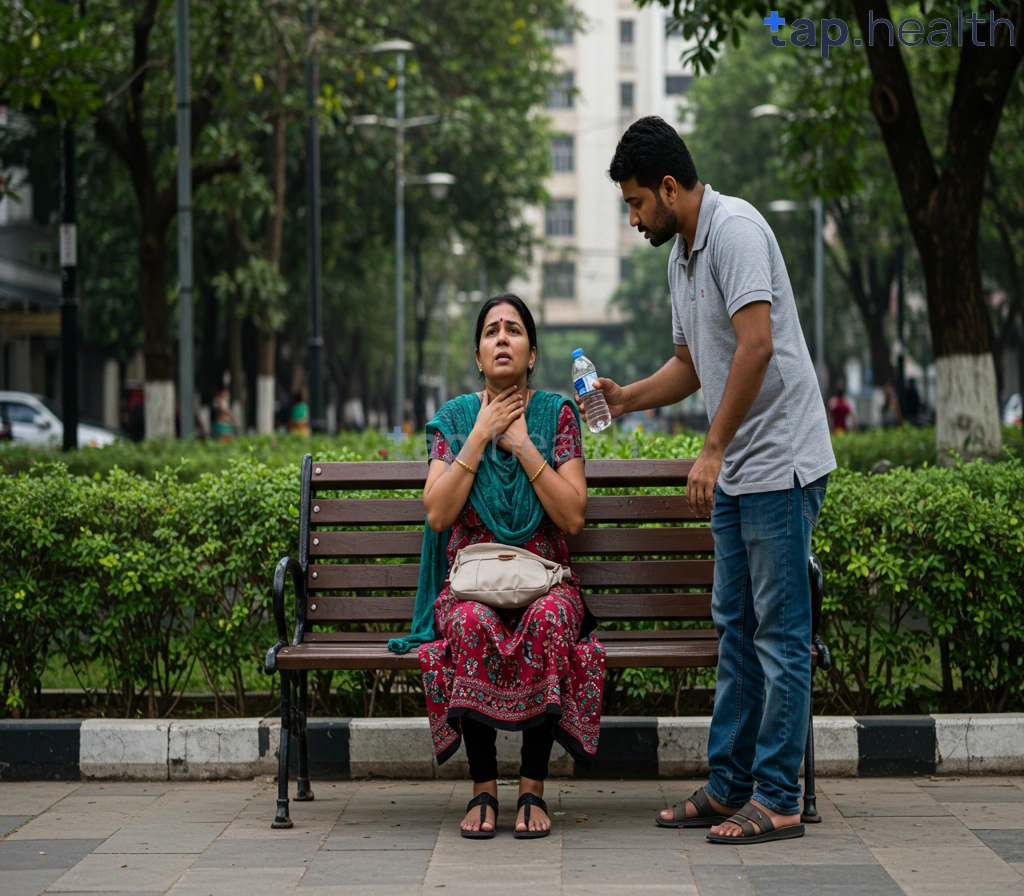Table of Contents
- Understanding Diabetes Medications: A Comprehensive Guide
- Diabetes Drug Classes: How They Work & Side Effects
- Natural Supplements for Diabetes: Benefits & Risks
- Diabetes Management: Drugs, Supplements & Lifestyle Changes
- Choosing the Right Diabetes Treatment: Medication vs. Supplements
- Frequently Asked Questions
- References
Living with diabetes can feel like navigating a complex maze, especially when it comes to managing your blood sugar levels. You’re bombarded with information about medications, supplements, and lifestyle changes – it’s enough to make your head spin! This blog is dedicated to helping you unravel that maze. Understanding Diabetes: Navigating the World of Drugs and Supplements is all about empowering you with clear, concise information so you can make informed decisions about your care. We’ll explore various treatment options, discuss their pros and cons, and ultimately help you find what works best for your individual needs. Let’s embark on this journey together!
Understanding Diabetes Medications: A Comprehensive Guide
Diabetes, a prevalent condition globally, significantly impacts a large population, particularly within the 20-64 age group, comprising 61% of all those diagnosed, according to the International Diabetes Federation. In Indian and tropical countries, the prevalence is often compounded by factors like lifestyle and access to healthcare. This guide provides an overview of diabetes medications, crucial for effective management.
Types of Diabetes Medications
Several medications manage diabetes, each targeting specific aspects of the disease. Insulin, a hormone naturally produced by the pancreas, remains a cornerstone treatment, especially for type 1 diabetes and some cases of type 2. Oral hypoglycemic agents, such as metformin, sulfonylureas, and DPP-4 inhibitors, are frequently used for type 2 diabetes. These medications work differently – some improve insulin sensitivity, while others stimulate insulin release or reduce glucose production by the liver. The choice of medication depends on various factors, including the type of diabetes, individual health status, and other medical conditions.
Navigating Treatment Options
Choosing the right medication is a collaborative process between the patient and their healthcare provider. Regular monitoring of blood sugar levels is essential to assess treatment effectiveness and make necessary adjustments. Lifestyle modifications, such as diet and exercise, remain crucial components of diabetes management, often complementing medication. In tropical climates, particularly in India, access to reliable healthcare and affordable medication can present challenges; understanding your treatment options and proactively engaging with healthcare professionals is paramount. For further information on dietary supplements that can support diabetes management, you might find our article on Safe and Effective Dietary Supplements for Diabetes Care helpful.
Seeking Expert Advice
It is vital to consult with a qualified healthcare professional for personalized advice on managing your diabetes. They can help determine the most suitable medication based on your specific needs and circumstances. Ignoring symptoms or delaying treatment can lead to serious complications. Remember, proactive management is key to a healthier and longer life with diabetes. As you age, managing diabetes can present unique challenges. Learn more about these challenges and potential solutions in our blog post: Managing Diabetes as You Age: Challenges and Solutions.
Diabetes Drug Classes: How They Work & Side Effects
Understanding how diabetes medications work is crucial for effective management, especially in resource-constrained settings common across many Indian and tropical countries. Over 75% of people with diabetes live in low- and middle-income countries, highlighting the global disparity in access to care. Different drug classes target various aspects of the disease, each with its own mechanism and potential side effects.
Insulin Therapies:
Insulin remains a cornerstone of treatment, particularly for type 1 diabetes and some individuals with type 2 diabetes. Various formulations exist, including rapid-acting, short-acting, intermediate-acting, and long-acting insulins. While highly effective, potential side effects include hypoglycemia (low blood sugar), weight gain, and injection site reactions. Careful monitoring and patient education are essential for safe and effective insulin use.
Oral Medications:
Several oral medications are available to manage type 2 diabetes. These include metformin (a common first-line treatment), sulfonylureas (stimulate insulin release), DPP-4 inhibitors (enhance incretin effects), SGLT2 inhibitors (increase glucose excretion), and GLP-1 receptor agonists (improve insulin secretion and reduce glucagon secretion). Side effects vary depending on the specific drug but can range from gastrointestinal upset to more serious issues like hypoglycemia or cardiovascular complications. Choosing the right medication requires a tailored approach based on individual needs and potential risks. Access to these medications can be a challenge in some parts of India and tropical countries, making patient education and early intervention vital. The choice of medication is also heavily influenced by factors like kidney function, so understanding which drug is best for diabetics with kidney disease is crucial. For more information, see our article on Which Diabetes Drug is Best for Diabetics with Kidney Disease?
Traditional Medicine and Supplements:
It’s important to note that while some traditional remedies might offer complementary benefits, they should never replace prescribed medication. Always consult a doctor before using any herbal remedies or supplements alongside prescribed diabetes medications, as interactions can occur. The availability and effectiveness of traditional treatments vary greatly across regions. It’s also important to be aware of potential causes of diabetes, such as certain medications. You can learn more about this in our article on Can Drugs Cause Type 1 Diabetes?
Effective diabetes management requires a comprehensive approach, including medication, lifestyle changes, and ongoing monitoring. Access to quality healthcare and information is particularly crucial in low- and middle-income countries.
Natural Supplements for Diabetes: Benefits & Risks
Exploring Natural Options for Blood Sugar Management in India and Tropical Countries
Managing diabetes effectively often involves a combination of medication, diet, and lifestyle changes. While pharmaceutical drugs play a crucial role, many individuals in India and tropical countries explore natural supplements to support their blood sugar control. It’s vital, however, to approach these supplements with caution and under the guidance of a healthcare professional. Remember, maintaining a balanced diet, including approximately 45–60 grams of carbohydrates per meal (depending on individual needs), remains the cornerstone of effective diabetes management. For more information on optimal food choices, check out our article on 20 Best Foods for People with Diabetes – Tap Health.
Popular Supplements and Their Potential Impact
Several supplements are traditionally used in these regions to help manage blood sugar levels. These include bitter melon, gymnema sylvestre, and cinnamon. While some preliminary research suggests potential benefits in lowering blood sugar or improving insulin sensitivity, more robust clinical trials are often needed to confirm these effects. It’s crucial to understand that these supplements are not a replacement for prescribed medication. They should be considered complementary therapies, used only after consulting a doctor.
Risks and Considerations
The use of natural supplements for diabetes can pose risks. Some supplements may interact negatively with existing medications, leading to adverse effects. Furthermore, the quality and purity of supplements can vary significantly, making it essential to source them from reputable suppliers. Always inform your doctor about any supplements you are considering taking, particularly if you are already on medication for diabetes or other health conditions. While exploring natural options, it’s important to be aware of potential interactions and side effects; for example, some research explores the potential effects of marijuana for diabetes, highlighting the need for careful consideration and professional guidance.
Seeking Expert Advice
Before incorporating any natural supplement into your diabetes management plan, consult a qualified healthcare professional in India or your specific tropical region. They can assess your individual needs, consider potential interactions with your medication, and guide you towards safe and effective practices. Remember, responsible diabetes management requires a holistic approach that prioritizes medical advice and a balanced lifestyle.
Diabetes Management: Drugs, Supplements & Lifestyle Changes
Managing diabetes effectively in Indian and tropical countries requires a holistic approach encompassing medication, supplements, and crucial lifestyle modifications. Blood pressure control is a vital component; the target blood pressure for many with diabetes is below 140/90 mmHg, although some guidelines suggest aiming for below 130/80 mmHg. Achieving and maintaining these levels requires a concerted effort.
Medication and its Role
Diabetes medications, prescribed by your doctor, play a crucial role in managing blood sugar levels. These range from oral medications like metformin, commonly used in India, to injectable insulin. The choice of medication depends on your specific type of diabetes (Type 1 or Type 2), its severity, and other health factors. Regular monitoring of blood glucose levels, along with adherence to the prescribed medication regimen, is essential. Always consult your doctor before starting or stopping any medication.
Supplements and their Impact
While some supplements, like chromium or cinnamon, are popularly discussed for their potential blood sugar-regulating properties, it’s crucial to understand that they are not a replacement for prescribed medication. Their efficacy varies, and scientific evidence supporting their widespread use in diabetes management is limited. Always discuss any supplement use with your doctor to avoid potential interactions with your existing medications. Prioritizing a balanced diet rich in fruits, vegetables, and whole grains is far more impactful than relying solely on supplements.
Lifestyle Changes: The Cornerstone of Management
Lifestyle modifications form the cornerstone of effective diabetes management in hot and humid climates like those prevalent in many Indian and tropical regions. This includes regular physical activity, even short walks in the cooler parts of the day to avoid heat stress, a balanced diet adapted to regional food availability, and stress management techniques like yoga or meditation. These changes, coupled with regular medical check-ups and adherence to prescribed medication, are key to successfully navigating diabetes and maintaining a healthy blood pressure within the recommended ranges (below 140/90 mmHg, or ideally below 130/80 mmHg). Regular monitoring and open communication with your healthcare provider are paramount. Consult your doctor or a certified diabetes educator for personalized guidance tailored to your specific needs and regional context. For more practical tips, check out 10 Proven Tips for Effective Diabetes Management. Managing diabetes often involves addressing other health concerns. For information on cholesterol management, see our guide on How to Manage Cholesterol Levels with Diabetes?
Choosing the Right Diabetes Treatment: Medication vs. Supplements
Understanding Your Options
Diabetes, a growing concern globally, affects millions, including a significant number of youth. In the U.S., the alarming statistic of approximately 35 per 10,000 youths diagnosed with diabetes highlights the urgency of understanding effective treatment. For individuals in Indian and tropical countries, where diabetes prevalence is also rising, navigating treatment options is crucial. This involves carefully weighing the benefits and risks of both prescribed medications and various supplements.
Medication: The Cornerstone of Diabetes Management
Traditional medical approaches generally center around prescription medications. These can include insulin, metformin, or other drugs carefully tailored to individual needs and blood sugar levels. These medications are developed and rigorously tested, offering a scientifically proven path to managing blood glucose. However, it is crucial to remember that medication should always be taken under the strict guidance of a qualified doctor. Self-medication can be dangerous and lead to serious health complications.
Supplements: A Supporting Role, Not a Replacement
Numerous supplements claim to help manage diabetes symptoms. While some may offer modest benefits, such as improved insulin sensitivity or blood sugar regulation, they should never replace prescribed medications. It is vital to consult your doctor before incorporating any supplements into your diabetes management plan. Many supplements lack rigorous scientific backing, and some may even interact negatively with existing medications. In the context of Indian and tropical countries, where traditional medicine is often integrated with modern treatments, this consultation is particularly important to avoid harmful interactions. Understanding the differences between Type 1 and Type 2 diabetes is also crucial for effective management. For more information, read our article on Which Diabetes Is Worse: Type 1 or Type 2? Key Comparisons.
Making Informed Choices
The key to successful diabetes management lies in a holistic approach. This involves a balanced diet, regular exercise, and, crucially, close collaboration with a healthcare professional. Consult your doctor or a certified diabetologist to determine the most appropriate treatment plan for your unique needs, considering both medication and the potential role of carefully selected supplements. Remember, prioritizing your health involves making informed choices based on sound medical advice. Dietary choices play a significant role, and you might find our article on Low-Carb vs. Moderate-Carb Diets for Diabetes: What Works Best? helpful.
Frequently Asked Questions on Diabetes Drugs & Supplements
Q1. What are the main ways to manage diabetes?
Diabetes management involves a combination of medication (insulin and oral hypoglycemic agents like metformin), lifestyle changes (diet and exercise), and regular monitoring of blood sugar levels. The specific medication will depend on your diabetes type and overall health.
Q2. Are natural supplements like bitter melon and cinnamon helpful?
Some natural supplements, such as bitter melon and cinnamon, may offer minor benefits, but they should never replace prescribed medication. Always consult your doctor before using them, as they can interact with other medications.
Q3. How important is regular blood sugar monitoring?
Regular blood sugar monitoring is crucial for effective diabetes management. It helps you and your doctor track your blood sugar levels, adjust your treatment plan as needed, and prevent serious complications.
Q4. What role does lifestyle play in diabetes management?
Lifestyle changes, including a healthy diet and regular exercise, are essential for managing diabetes. They complement medication and can significantly improve your overall health and blood sugar control.
Q5. What are some potential challenges in managing diabetes, particularly in low- and middle-income countries?
Challenges include access to healthcare, affordability of medications, and the high prevalence of diabetes, especially among older adults. Proactive engagement with healthcare providers and regular monitoring are vital to overcome these challenges.
References
- A Practical Guide to Integrated Type 2 Diabetes Care: https://www.hse.ie/eng/services/list/2/primarycare/east-coast-diabetes-service/management-of-type-2-diabetes/diabetes-and-pregnancy/icgp-guide-to-integrated-type-2.pdf
- Children with Diabetes : A resourse guide for families and school. : https://www.health.ny.gov/publications/0944.pdf




